How to keep sharks and people safe?
Rio Button
August 06, 2020 · 6 min read
August 2004: “Shark!” a surfer screamed. Chaos and confusion erupted. Whilst signalling a warning through wild arm gestures and shouting to those still in the water, panicked surfers frantically clawed to the safety of the shore. Hysteria spread through the waves packed with surfers along Muizenberg Beach, a 20km popular surfing beach in Cape Town, South Africa. At the time, big wave surfer Greg Bertish was teaching some friends to surf. When the warning finally reached them, they scrambled to join the mass exodus. Once Greg and his friends were safely on the sand, it took a further quarter of an hour for the remaining surfers to heed the warning and get out of the water.
Is killing sharks the only solution?
Months after the incident Greg’s thoughts kept circling back to that shark scare day, and he ruminated over the series of shark incidents that had happened that year. Potential solutions to mitigate human shark interactions were continuously discussed in 2004. Sadly, all these “solutions” were focussed on culling sharks, the logic being that fewer sharks would equal fewer shark incidents. The culling methods included shooting sharks, deploying shark nets (which not only snare sharks but also kill large marine animals including dolphins, turtles and even whales) and deploying drum lines (large baited hooks which are also notorious for indiscriminately killing marine life). Human shark interaction mitigation discussions dragged on and on until Greg took the matter into his own hands. He came up with a solution that drew on his deep love, connection, and knowledge of the ocean as well as his lifesaving experience.
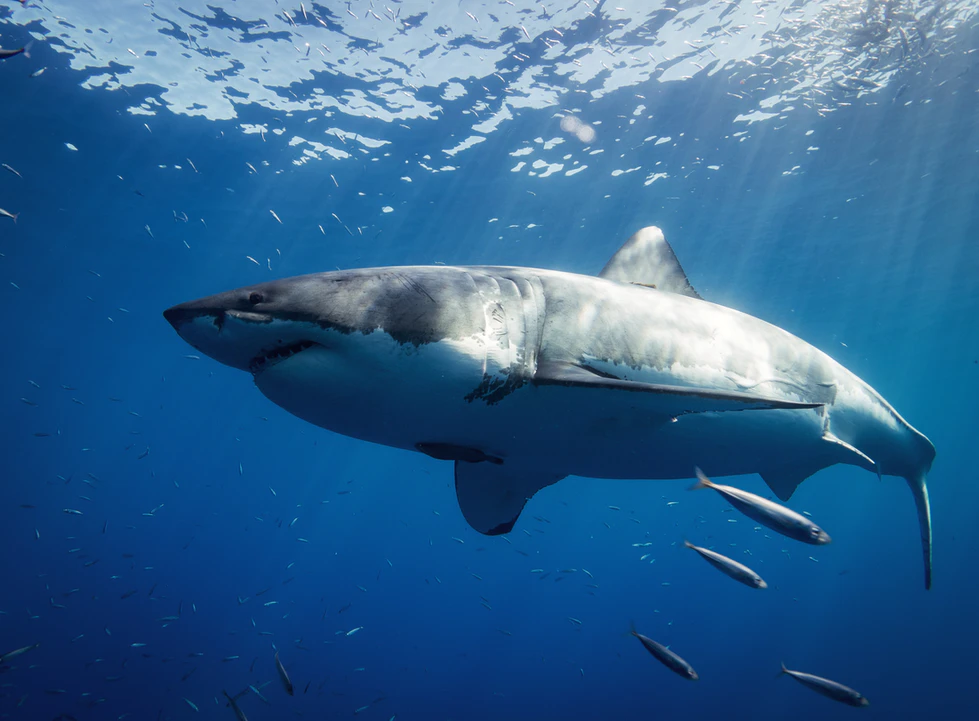
Military service in a speedo
During his compulsory military service, Greg had joined lifesaving. This allowed him to spend some of his guard duty in a speedo, at the beach, during his days of National Service. From his brother’s work with fishermen, he knew that scouts were sent up the mountain behind Muizenberg beach to locate where the schools of fish were and that the scouts occasionally saw big sharks cruising into the bay. From this knowledge Greg came up with the prototype for “Shark Spotters”, a non-lethal solution to mitigate human shark interactions. The City of Cape Town was initially skeptical of the idea, but Greg pushed ahead with it anyway.
The not so legal start to Shark Spotters
In the dead of night, Greg and his brother-in-law slinked down to the toilet block at Muizenberg beach and illegally bolted an old war siren and a flag pole to it. He and friends, Dave and Fiona Chudleigh from Surf Shack, initially recruited Monwabisi, an unemployed lifeguard, and Rasta, a car guard, as the first two members of the Shark Spotters crew. Monwabisi was stationed on the mountain with binoculars looking out for sharks and the Rasta on the beach. When a shark was spotted Monwabisi would radio Rasta, who would then sound the siren and raise a shark flag.

From humble beginnings
The project has evolved and expanded immensely over the years. Shark Spotters now covers four beaches all year round and six beaches over the summer season. In summer great white sharks tend to spend more time near the shore feeding on fish, rays and smaller shark species as their winter food supply of baby seals learn predator avoidance strategies and become harder to catch. Summer also brings hoards of swimmers and surfers to the beaches, and this is where the potential for conflict begins. Shark Spotters have a colour-coded flag system to indicate how recently a shark was seen, as well as how likely a shark being able to be detected is, which is largely based on the water and weather conditions. This non-lethal shark interaction mitigation method is the first of its kind, and the City of Cape Town is now fully onboard with the project and together with Save Our Seas Foundation provide the majority of their funding. Shark Spotters employs over 40 people from previously disadvantaged communities. These employees are trained in first aid and many educate their communities about sharks and shark activity.
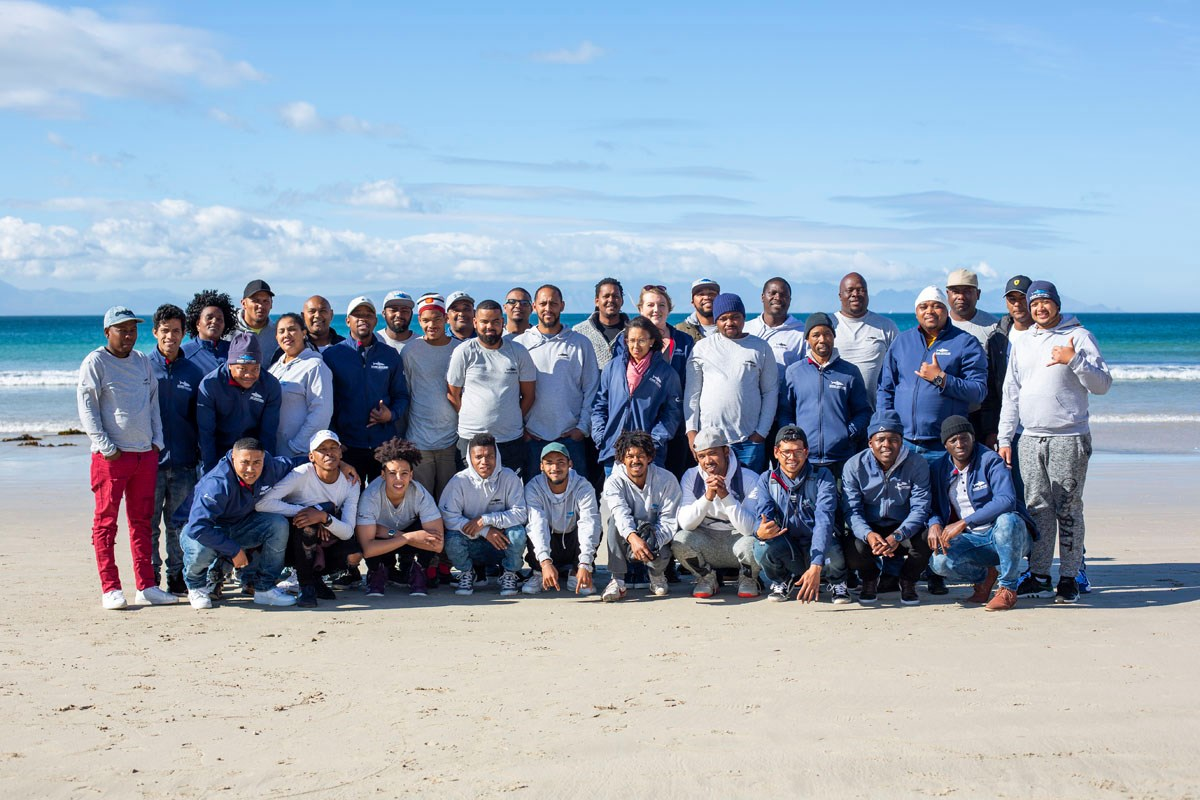
We protect only what we understand
Shark Spotters educates people about sharks and clarifies why we, as humans, need them. Sharks keep our oceans balanced and healthy by maintaining species below them in the food chain. Shark Spotters provides factual, non-sensational information about sharks so that people can make informed decisions about entering the sea.
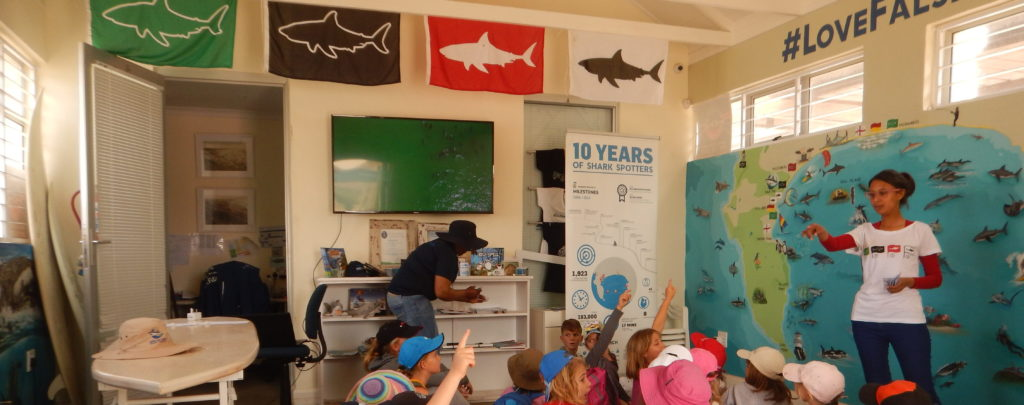
Shark Spotters’ research helps answer questions like “Where do sharks go?”, “How do sharks behave in different conditions and seasons?”, and “How many sharks are there?” They also test methods using innovative technology and potential solutions to mitigating human shark interactions.
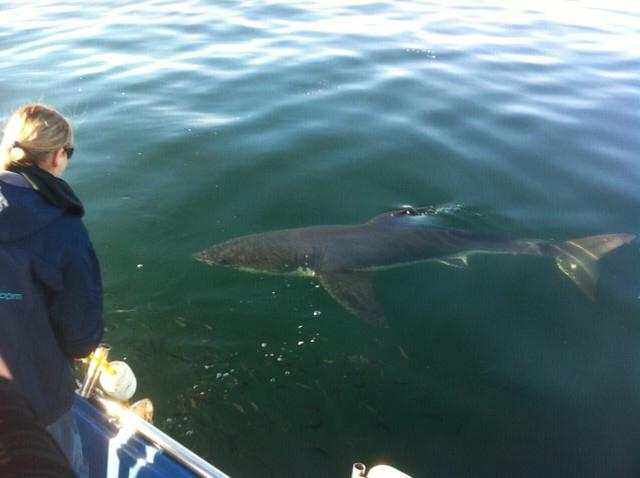
Who is really under attack: Sharks or people?
Sharks keep our oceans balanced and healthy. We need these magnificent creatures alive but since you started reading this article, 1198 sharks have been killed. They are slow-growing, long-living creatures and many shark species can’t reproduce as fast as they are being killed.
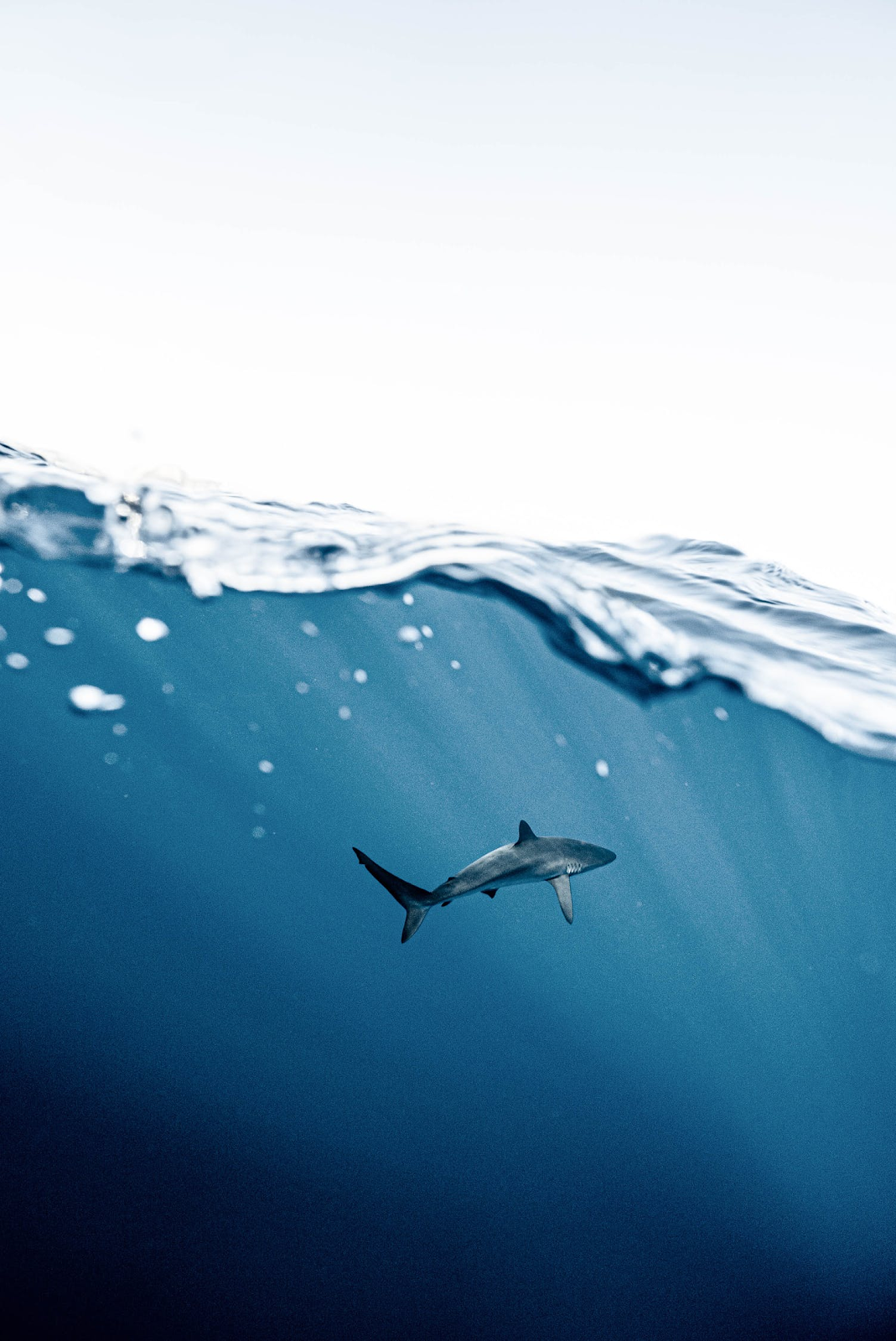
Shark Spotters partner with Wildcards!
Shark Spotters first wildcard Sihle the great white shark will go live soon! This card has a captivating fact-filled story about her. In the future more sharks the Shark Spotters protects will be added to the Wildcards kingdom to benefit the Shark Spotters.
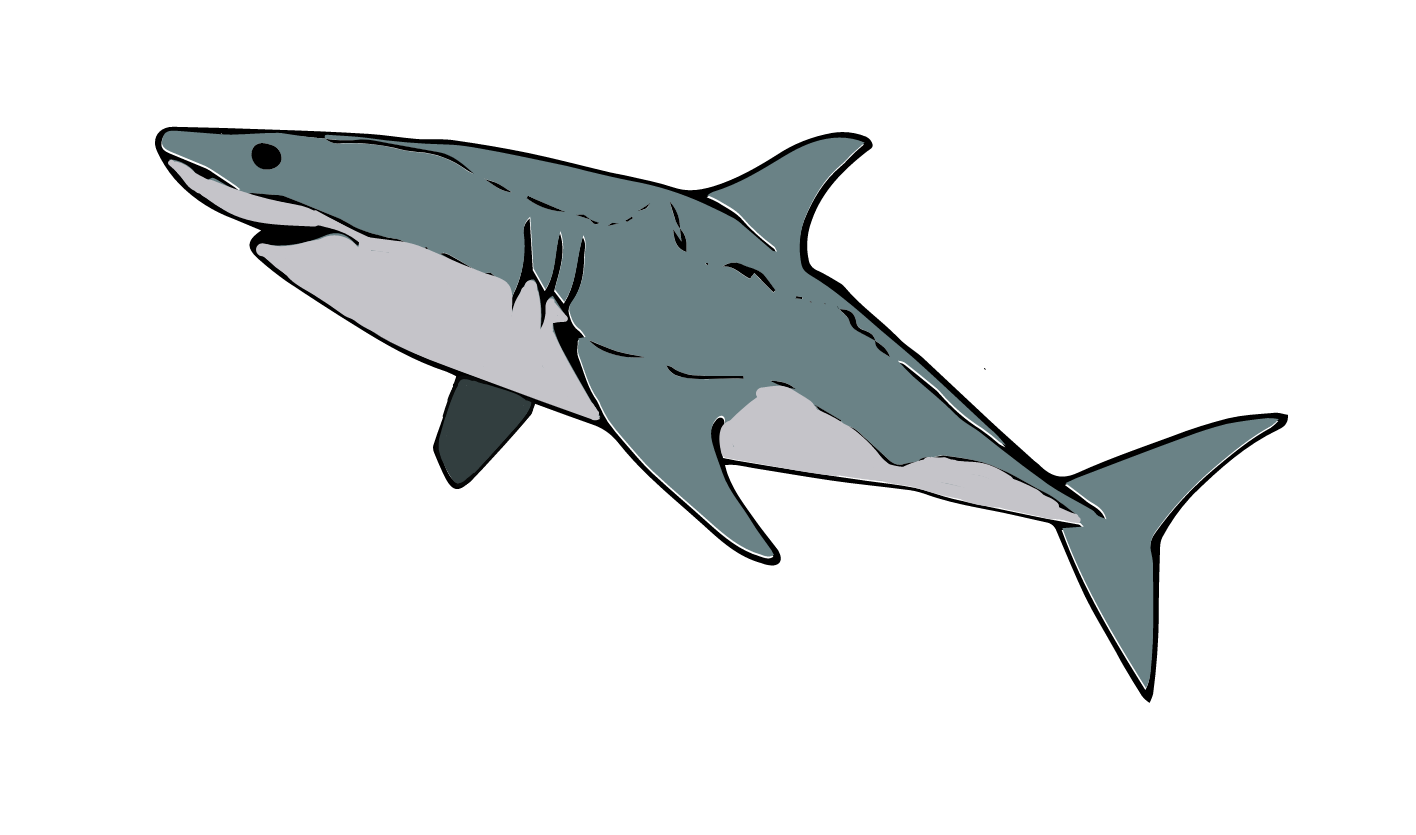
Do you want to actively get involved with protecting wildlife? If so you can publicly buy one of these wildcards online, which will make you the guardian of that wildcard animal. When you buy a wildcard, you must also set the price you are willing to sell it for. Every month, as the guardian of a wildcard you will give a specified portion of the selling price you set, to that animal’s representative conservation agency, in this case, the Shark Spotters. At any point, someone can buy the wildcard from you, at the selling price you specified. When someone buys the wildcard from you they must set a selling price. The new guardian of the wildcard is then responsible for giving the new monthly subscription. And so, the cycle continues the generation of funds.
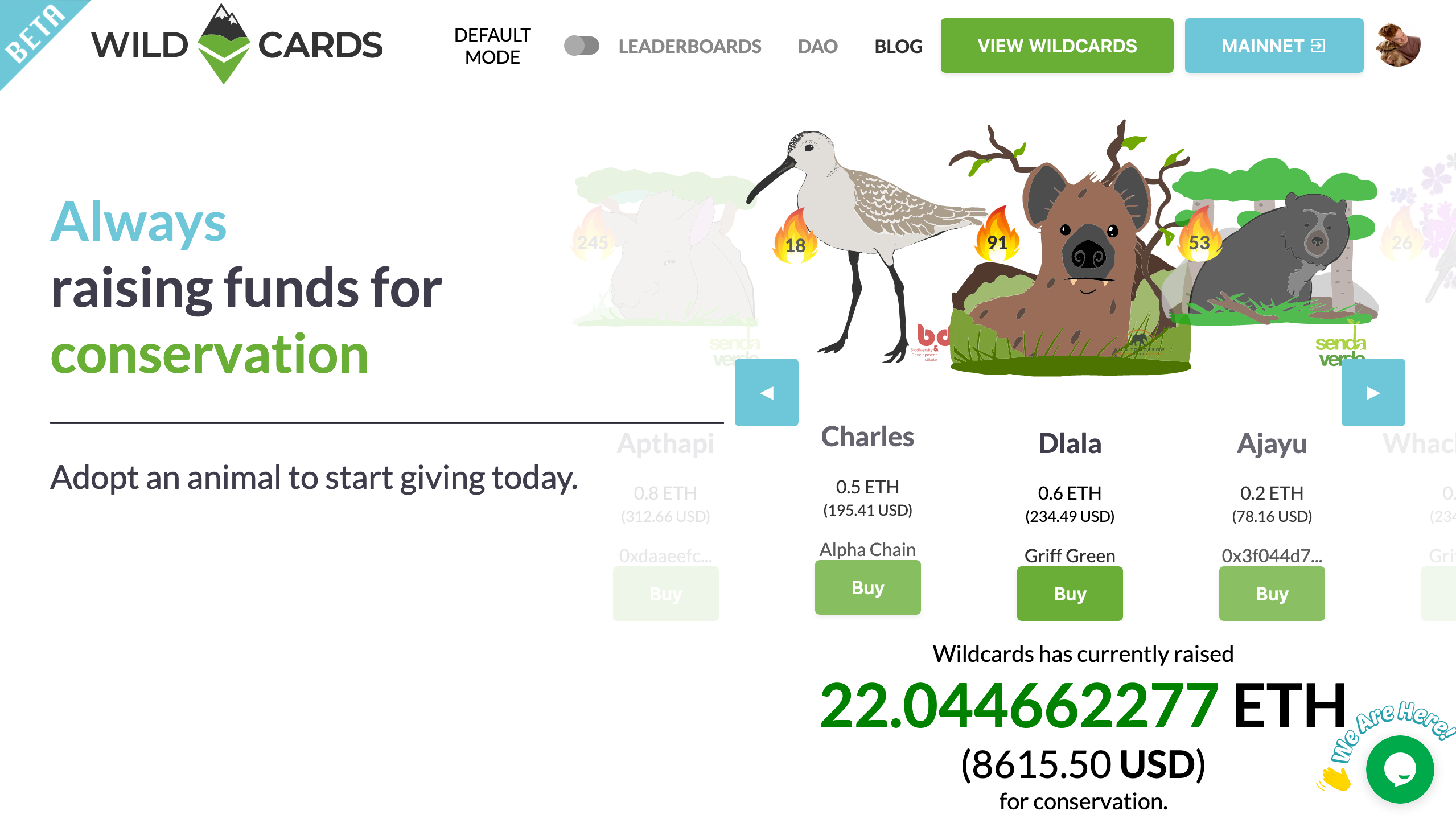
Wildcards is ecstatic about connecting funders with conservation agencies having a real world impact on the protection of wild animals.
To find out more about Wildcards check out:
Wildcards: an unprecedented means of funding conservation
Follow Wildcards on Instagram: @wildcards_world
Follow Wildcards on Twitter: @wildcards_world
Follow Wildcards on Facebook: @wildcards.conservation
Join us on Discord
Rio Button
Dr Seahorse’s journey
From unravelling seahorses’ secret sounds to safeguarding the habitat of these little super dads. St...
Rio Button
June 29, 2022 · 5 min read
What wild animal leaves teddy bear footprints behind?
Photo by Helena Atkinson. Photo by Helena Atkinson. Here are some clues… Using their sticky tongues,...
Rio Button
February 07, 2022 · 9 min read
Tech innovation: Solving wildlife conservation's greatest challenge
Tech start-up Wildcards has raised over 130,000 USD for conservation organisations around the world ...
Rio Button
August 24, 2021 · 7 min read
Curious creatures under persecution
From having a deep fear of sharks to defending them. Reluctant, Grant Smith tumbled backwards off t...
Rio Button
July 26, 2021 · 8 min read
NFT Postcards for a purpose
NFT Postcards for a purpose A limited edition set of NFTs has been created in partnership with the T...
Jason Smythe
April 01, 2021 · 2 min read
Do you Care for Wild?
As rhino poaching soars, what happens to the orphaned rhino calves left behind? An orphaned baby bla...
Rio Button
February 24, 2021 · 7 min read
Where the wild things roam
South Africa’s most Endangered carnivore can’t be kept in by fences. Wildcards chatted to the man re...
Rio Button
February 23, 2021 · 10 min read
Rumours of an elusive feline in the mangrove forest
While collecting data in San Pedro de Vice Mangroves, in the Sechura desert, final year biology stud...
Rio Button
December 23, 2020 · 8 min read
South Africa’s last remaining white shark stronghold under threat
The Oceans Research Institute battles the impact of demersal longline fishing to safeguard great whi...
Rio Button
November 25, 2020 · 8 min read
Malaysia has marine mammals?
90% of Malaysians don’t know there are dolphins and whales in Malaysian waters There are at least 6 ...
Rio Button
November 17, 2020 · 9 min read
